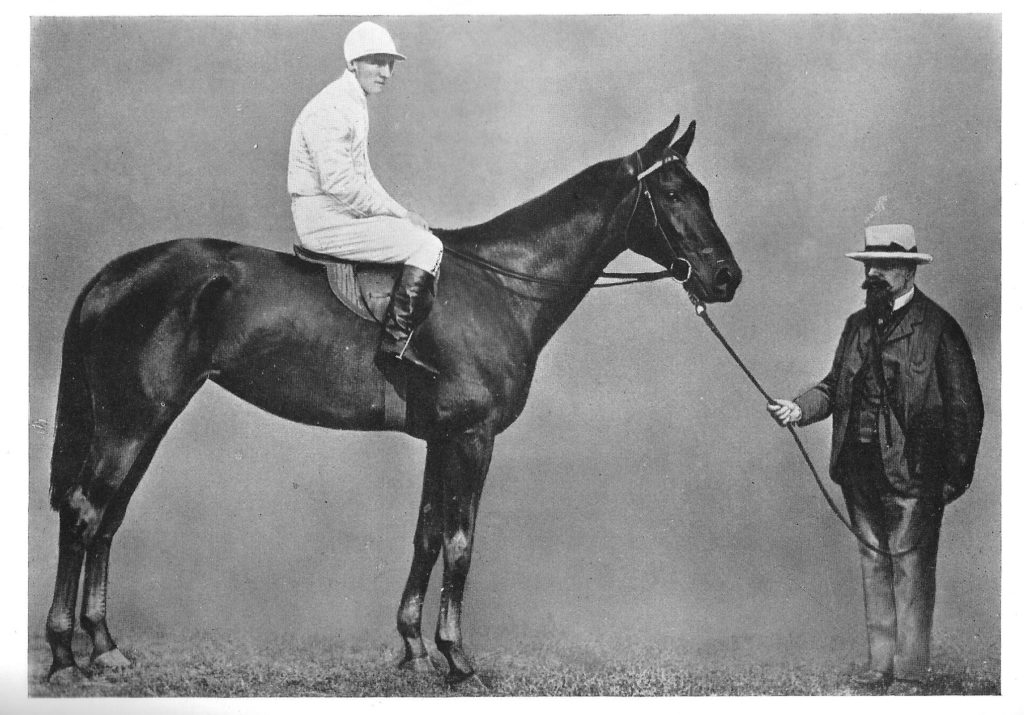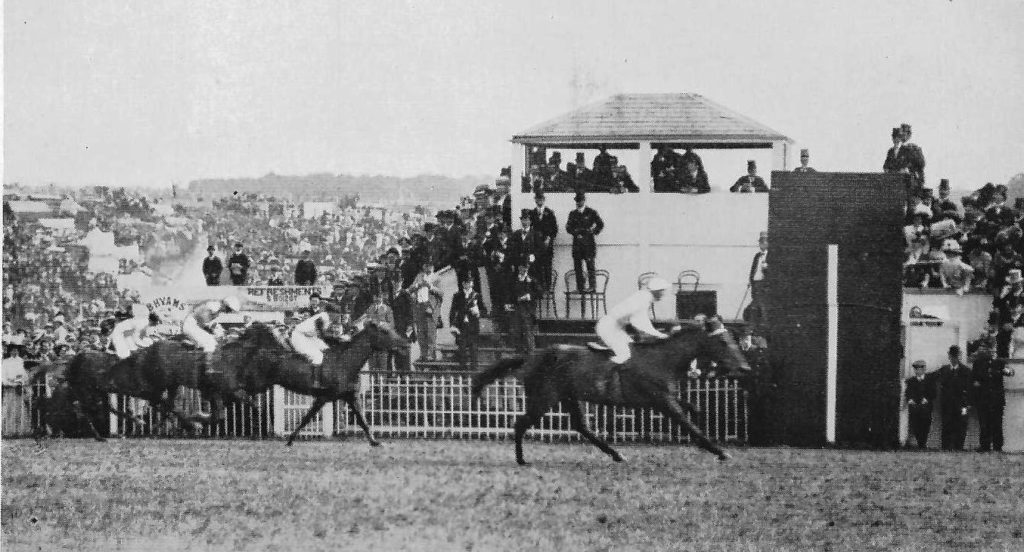Signorinetta and the boundless laws of sympathy and love
Mobiles view Landscape

THE story of Signorinetta is one of true romance. In 1908 she won the Derby at 100-1, two days later she added the Oaks – and then never won again. She was bred, owned and trained by Cavaliere Odoardo Ginistrelli (1833-1920), an eccentric Italian Senator, known as ‘the Chevalier’.
Signorinetta’s dam Signorina was also bred by Ginistrelli, but after winning 11 races and finishing second in the Oaks she was 10 years at stud before producing her first live foal. Two further barren years followed until, Ginistrelli decided to take into consideration what he called “the boundless laws of sympathy and love”.
Every day the Cesarewitch winner Chaleureux had to pass Signorina’s paddock and every day they greeted each other with a neigh. On a sentimental impulse, Ginistrelli paid the nine-guinea fee for Chaleureux’s services, and the result was Signorinetta.
After five unplaced runs as a two-year old, Signorinetta finally got of the mark by winning the Criterion Nursery Handicap carrying 6st 3lb.
The following year, she ran unplaced in the One Thousand Guineas and the Newmarket Stakes before arriving at Epsom as a 100-1outsider, preferred to only one of the 18 runners in the Derby betting.
The race appeared an open affair, with the American bred Two Thousand Guineas winner, Norman and the unbeaten Mountain Apple sharing favouritism at 11-2. The French horse, Sea Sick, who had crossed the channel after dead-heating for the Prix du Jockey-Club the previous Sunday, was well supported at 7-1. This year an interval of 55 minutes preceded the Derby, during which the jockeys weighed out and the horses preparation was scrutinised by an ever growing audience. In retrospect, it was noted that Signorinetta appeared to be the coolest and calmest of them all.
However, down at the start an element of chaos took over – the tapes were broken many times and a few runners charged off after ducking under the tapes. Eventually after a 21-minute delay, the field got under way and on settling down were led by Mercutio, setting a strong pace from Orphah, Norman and further back, Sea Sick, Moet and White Eagle. At the top of the hill, Mountain Apple surged through to take up the running, leading into the straight from Sir Archibald and White Eagle. Approaching the two-furlong pole, Signorinetta, having made steady progress, came to challenge and with Billy Bullock aboard, ran on to win by two lengths from Primer and Llangwm.
After the weigh-in, King Edward VII sent for Ginistrelli, who still wearing his battered Panama hat, was taken by the King and presented to the cheering crowd. It was a memorable occasion for all present and one that inevitably added to the romance of the Derby.

Signorinetta wins from Premier and Llangwm
Two days later, Signorinetta, returned for the Oaks, now 3-1 second favourite behind the 6-4 Rhodora, winner of the One Thousand Guineas. Ten others completed the field.
During the race an incident near the mile post caused French Partridge to fall and Rhodora, trying to jump over her also fell. From there, Signorinetta, handily placed to avoid the carnage, went on to win by three-quarters of a length.
Signorinetta contested three more races, including the St Leger, but failed to reach a place in any and was retired to stud at the end of the year. In all she had seven live foals, the best being The Winter King, winner of the Lowther Stakes and sire of the Grand Prix de Paris winner Barnveldt. She had no produce after 1921 and died in 1928.
Billy Bullock (1885-1963), who won both the Derby and Oaks on Signorinetta, was born in Morpeth in Northumberland. Both his brother and his grandfather were trainers and his uncle, Ralph Bullock, rode Kettledrum to victory in the 1861 Derby. Memorably for Bullock, after his Classic double for Ginistrelli, he received only the basic riding fee, accompanied by a cigar and a glass of wine. After the First World War, Bullock rode in Denmark, where he was Champion Jockey from 1924 to 1927. In 1933, he rode Leonard, off 7st 9lb, to win the Northumberland Plate for Captain Elsey and continued to ride work for him to the age of 74.